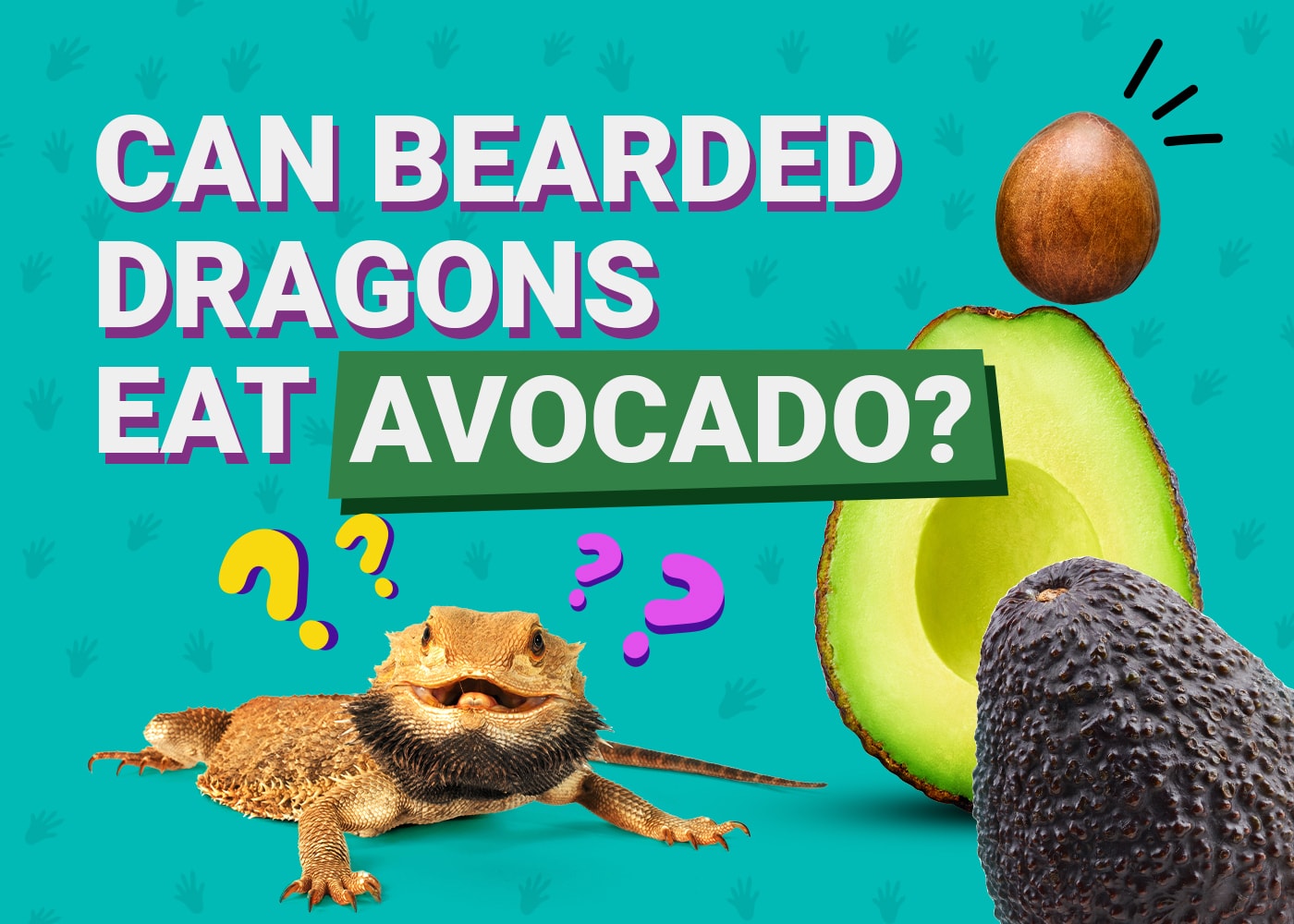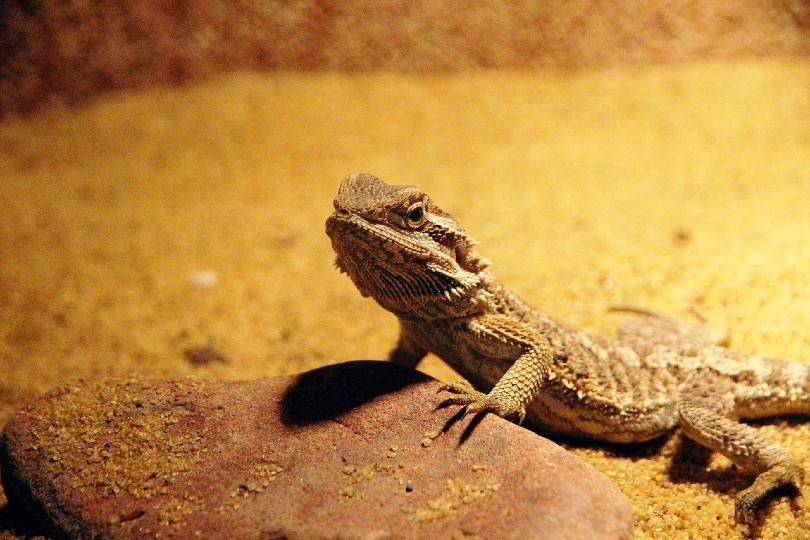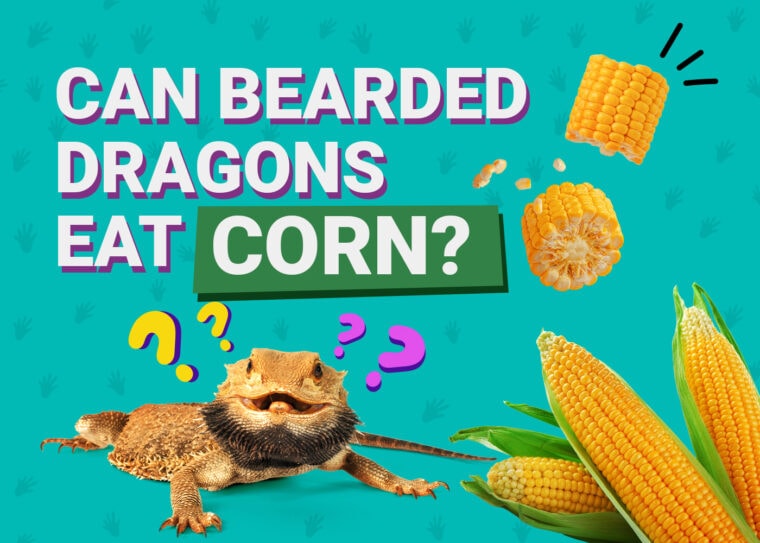
Click to Skip Ahead
You’ll likely find a lot of bearded dragons in the 5.7 million American households that have reptiles1. It’s easy to see why. They don’t get too large, getting less than 24 inches long2. These animals are docile enough so that you can handle them, allowing pet owners to have a closer bond with their reptilian friends.
Bearded dragons are omnivores in their native land of Australia, where they live in a broad spectrum of habitats, from grasslands to forests to deserts3. This unfussy nature also applies to its diet. Your pet will most likely enjoy eating corn. However, you should limit how often you offer bearded dragons corn, like most treats. Let’s explore more of what you need to know before feeding your bearded dragon corn.
Nutritional Needs of the Bearded Dragon
The nutritional needs of reptiles vary depending on whether the animals eat meat, plants, or both. The bearded dragon must get between 20%–25% protein and 3%–6% fat. The recommended amounts of vitamins and minerals are generally higher than carnivorous reptiles. The other concern is the calcium-to-phosphorus ratio. It should be 1:1 to 2:1 for optimal health. Rodents often fit within this range.
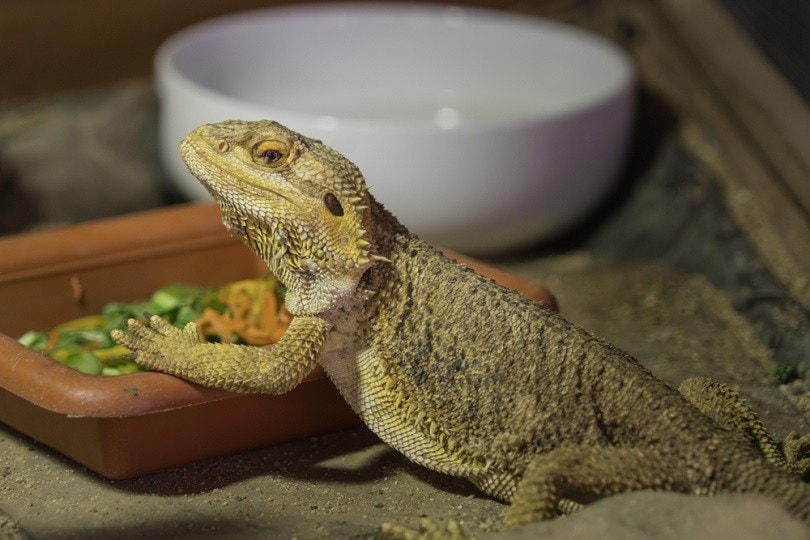
Diet in the Wild
We mentioned that this species is omnivorous. Its regular diet is a function of where the reptiles live. They eat mainly insects, plants, and the occasional lizard or rodent. The bearded dragon often lives in harsh environments where food is sometimes hard to find. That explains its undiscriminating diet. An animal must take what it can come across since survival depends upon it.
Nutritional Value of Corn
Let’s consider what corn has to offer your pet. A 100-gram serving contains 86 calories but is primarily water. It has 3.22 grams of protein. It is rich in potassium, magnesium, folate, vitamin C, and dietary fiber. However, the calcium to phosphorus ratio is 2 milligrams to 89 milligrams—considerably lower than recommended for reptiles.
The other nutrients that corn provides still keep it on the menu, though. Nevertheless, the ratio makes a solid argument for limiting your bearded dragon’s intake to only an occasional treat.
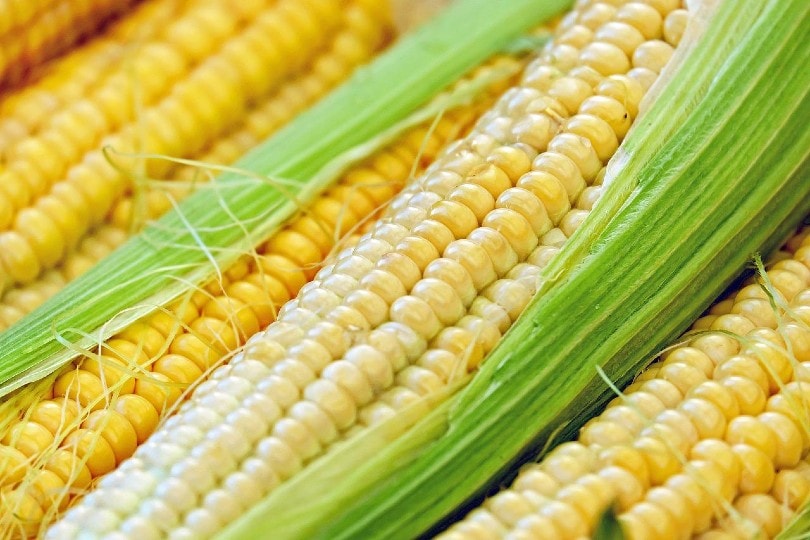
Raw, Cooked, or Canned?
Many vegetables vary in their nutritional value depending on how they’re prepared. For example, tomatoes and carrots offer more vitamins and minerals if you cook them. Our initial figures involved raw corn. If you want to give your bearded dragon a cooked serving of frozen corn, the sodium levels spike from 15–253 milligrams. The recommended intake is 0.2%.
The nutrient content of canned corn with no salt added isn’t much different. Interestingly, the concentration of vitamins and minerals doesn’t change much with the other forms. However, all signs point to sticking with raw corn if you want to give some to your bearded dragon.
Final Thoughts
Since bearded dragons are omnivores, the chances are they’ll accept corn if you offer it to them. However, the low calcium-to-phosphorus ratio makes them a poor choice as a regular part of your pet’s diet. We suggest limiting this starch to the occasional treat served raw. It has some nutritional value and will probably taste as good to your bearded dragon as it does for you.
Featured Image Credit: 1195798, Pixabay

